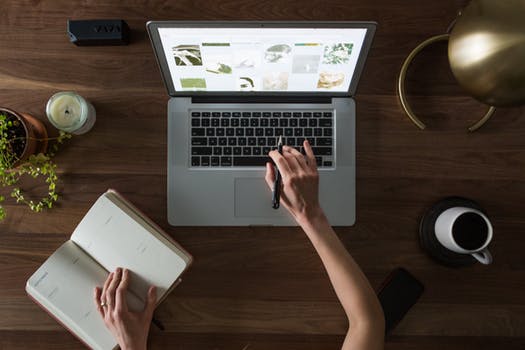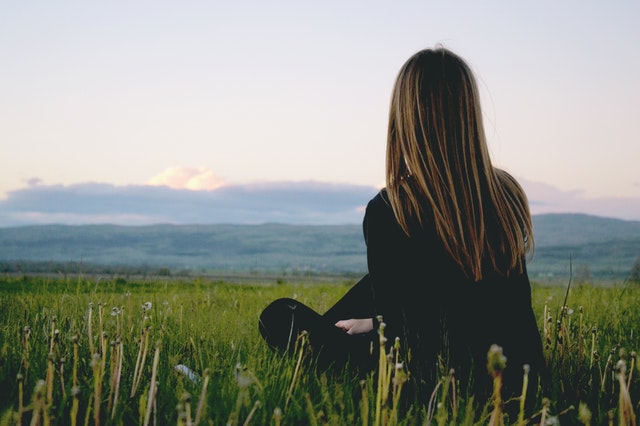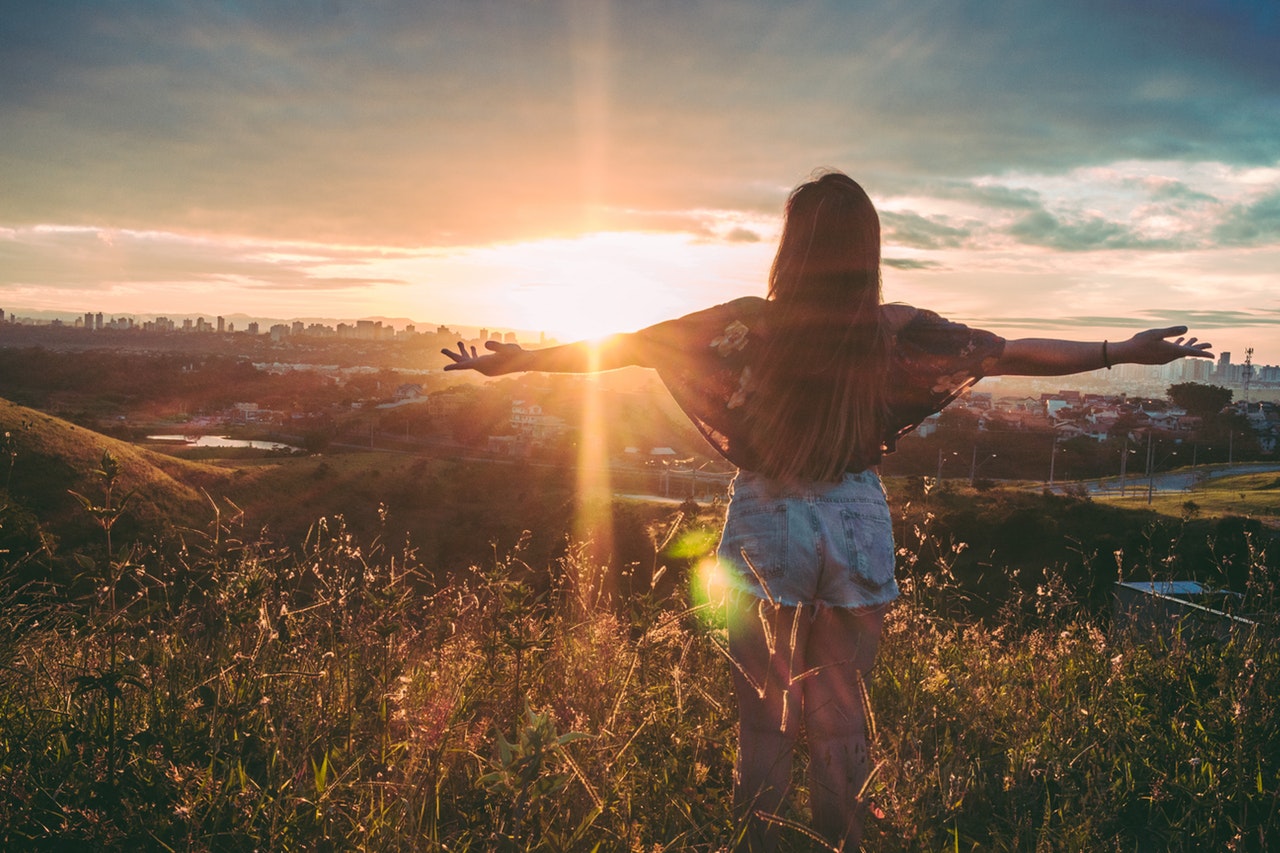ODE TO A MOTHER- Claiming Our Stories.
/With tremendous effort I was pulling off an A in public speaking. I was determined as a grown woman and a mother of three, to prove I was a capable student for the first time in my life. No one in that classroom knew I didn’t feel the least bit grown up. The magical transformation from insecure-people-pleaser, to self-assured-no-apologies adult, had passed me up. If anything, I felt incapable of claiming the attributes that I had earned with age and experience. I had know idea how to interpret my authentic life as a personal power. I just knew how to hide it.
That day was no different, especially considering the circumstances that I alone knew. It was of no consequence; I was living in the same uncomfortable skin I always had, regardless of what happened. I told myself, ‘stuff it down, it’s your superpower. Just tell these people why community supported agriculture rocks, and pretend you’re fine. You know the drill…’
I inserted the thumb drive that contained my colorful PowerPoint presentation. I took a deep breath and turned to a classroom full of faces. I said “Good morning…” and than I choked. Organic veggies where the last thing on my mind. My eyes welled up with tears as I attempted to form my next words, but the truth forced its way up and out, “...I can’t do this.” My professor looked confused. He urged me to continue, reassuring me I could. But I walked away from the podium. I yanked my thumb drive from the computer and grabbed my backpack as I headed toward the door.
“Emily, if you walk out on your final you will not pass this class.” But I kept my head down and walked straight past him and out of the classroom. Later when I emailed him, I was grateful for the final grade he gave me. He understood my inability to function that morning; not many people have an affinity for public speaking after finding out that their mother has just been arrested.
I had grown accustomed through my childhood to all the terrible things I overheard about people like us: we were lazy Welfare recipients, getting rich off of hardworking taxpayers, not contributing to anything in society… worthless. I looked at my shoes while people glared at us in the checkout line at Goodwin’s grocery store. My mom ripped our food stamps from the allocated stipend the government gave us each month, and presented the paper card that identified her as a bonafide failure of a human with kids. We took our peanut butter, milk and ground hamburger meat and left the curses of my mom behind us as she ushered us out of the store.
We walked home along the same roads, laden with plastic grocery bags banging against our bodies. My mom had owned a car once, but I was too young to remember. I was used to walking. My big sister shifted the weight of groceries uneasily; terrified someone from school would drive by and see her this way. I can recall how often heads turned back to get a better view of my beautiful mom; her tight blue jeans, laced up boots stomping through puddles, a cool green eyed glare and a flashing white smile.
She was young and beautiful then; the recipient of breast implants (a Christmas gift from my ex-stepdad), accompanied her unblemished skin and petite body. People often marveled that she had kids at all, especially the stupor of suitors that followed in her wake wherever she went. The assistance she received from the state was billed to my father. He made a life for himself elsewhere with whatever was left over. My step father had left when I was 7 but not before leaving his marks on my mom. I imagine that many women are welcomed to a world of poverty and single-momdom this way. The odds are forever stacked against them
The many homes we lived in through my childhood were hardly ever our own. Turns out the cash aid for a family consisting of one single mom with two dependents, doesn’t stretch very far. We lived with whatever boyfriend of my mother’s would put up with her and her “baggage”. It never lasted long. We lived in over 15 houses from the time I was a 2nd grader up until middle school. On the rare occasion that the rent was cheap enough for us to find a rental of our own, we would be so far from town that it was impossible to function. Without a vehicle, we hiked a heavy distance to and from the school bus stop. We ate the free lunch and later piecemilled dinners together with whatever was left in the fridge. I had only one friend whose parents would allow her to even come to the various houses we lived in, and I am proud today to know someone was there to witness what a wild world we made for ourselves.
Did my mom use the money and the food stamps to buy nutritious food and toilet paper? Did she pinch pennies and save so we could have a better future? So she could get a car, and than a job, and eventually wean us off the government's breast?? Of course not. She threw that money away when she had to: for dance lessons, for donuts on my birthday, for a new outfit from MacFrugals. She took us out to dinner on Saturday nights at the Big A for hamburgers with french fries, and gave us money so we could spend warm days swimming with the rest of the kids at Lake Gregory. By the end of the month we were packing our belongings into trash bags, my mom plucking butts from the ashtray outside and pacing back and forth with a short stub of cigarette hanging from her mouth. She would frantically glance up the street until Tom, Dick or Harry’s vehicle came into view and shuttled us off to a new place.
Getting rich off of welfare meant my mom slept through depression for a good majority of the day. We watched the same 5 VHS movies on a daily basis and filled the gaps in between with Nintendo. School attendance was often optional. When I couldn’t stand the dark, quiet pushing down on me inside, I took long walks through the winding hills in our mountain town, trying to get lost, knowing she would wake up and be sorry that I was gone. But I always knew how to get back home in the end. And I always wound up missing her first.
By the time I was in high school, many things had changed. My mom had given us a baby sister; a widowed mother, infant in arms, she could have fallen apart, but she didn’t. Through the support of her family, she won a court settlement of $60,000. This was for the removal of her ruptured silicone breast-implants. She wasted no time in pulling up her bootstraps. She moved us away from that god-forsaken town and purchased an old, faded blue, Ford LTD. She paid rent on a house for a full two years and moved us in. She got a job working nights at a local coffee shop. She took her wisdom of poverty and established a division she named “Special Projects” through the local church. It was a charitable cause that focused on assisting single mothers and getting them back on their feet.
That short time that spanned the life of what we called “mom’s boob-money’, was about 3 years total. During that time, I was given the greatest gift of my childhood; the opportunity to see who my mom could be. She wasn’t lazy. She wasn’t a low-life, dependent of the state. She didn’t pop out kids to collect a fatter welfare check. And she definitely didn’t choose the circumstances that had left us miserably poor for the majority of my life. Given the opportunity, she thrived. She helped other people that she knew were struggling like we had. She became a roll model for me for the first time.
But the effects of silicon in her bloodstream for the past 10 years, had taken its toll regardless of the riches it bestowed upon us. There were still days she couldn’t get out of bed. She had planned ahead and after waiting on a list for section 8 housing for more than 2 years, we were accepted. We moved into an apartment and my mom became a real welfare queen, paying rent that was $28 a month. She worked limited hours as a waitress, and spent the majority of her money medicating the pain she was daily living through. She had been diagnosed with Lupus, and than Reynaud's Syndrome and later, some kind of throat condition without a name. She kept medicating to get up and going. We knew that her good moments were sponsored by uppers, and that days of darkness would follow.
I moved out at the first glimpse of 18. My 4 year old sister spent a great deal of her childhood bouncing between my older sister’s house and my grandma’s. Eventually, wherever she was when she was away became more of a home than the places my mom was living. It turned out my mom couldn’t come up with her $28 rent. She was back to couch-surfing. Life got harder and so did the drugs.
It seems crazy now, but it was hard to feel sorry for her. It was even harder that day as I fled the college campus, cursing her name as tears ran down my cheeks. She had kept collecting the meager Welfare allotted to her as if my little sister were still a full time dependent. She owed the state the money she had unlawfully collected. She had been trying to apply for social security, trying to get a correct diagnosis, trying to keep living while the world, and her family, and even her daughters, slowly gave up on her. She was cuffed and taken away in the parking lot of her public defender.
We couldn’t pay bail. I was terrified my mom would show up to her trial date in an orange jumper, cuffed, without legal preparations. She would be dressed, playing the part of convicted felon in front of a judge who was yet to determine if she was even guilty. All praise be, a shitty X-boyfriend ended up paying for a bail bond to get her out. She would later be acquitted of all charges, but not until the stress and mental fatigue had pushed her half into a grave.
In the last years of her life she was diagnosed with scleroderma. It’s not a well known disease. It’s fatal, causing chronic and painful hardening of the skin and tissue. She had been dealing with this illness, and misdiagnosed since I was 10. Turns out Welfare queens don’t get the best medical coverage.
I realize that many people have made it through harder times than these; that single-momdom and welfare don't always end with tragedy. But in hindsight I see that poverty had it's clutches on us in ways that we could not have broken free. I spent my youth trying to defend my mom against the judgments of well meaning middle class Americans: “Why doesn’t your mom just… get a job...stop sleeping all day...spend less time worrying about that boyfriend…?” I hear the same comments about specific groups of people today and I quietly cringe.
There are so many people in this world that are just trying to make it through the day. I witnessed my mom live an entire life this way. I got a glimpse of her looking to the horizon, and making expectations for herself but it was too late. A lifetime of dependency, of willfully being a victim of her own means, and unwillingly being a product of poverty, led to her young death. I will always carry a sadness with me that she died in a state of ruin. But her absence has taught me that our story is one to own. It is pivotal that I examine it, and inspect what we were, as opposed to what I thought we were; or what I allowed other people to say we were. I am a bigger person when I claim this youth of mine. It fills me up, so that I no longer meet every obstacle with a “fake it ‘til you make it” philosophy. I am good enough, just as I am. And so was she.
-Emily









































































